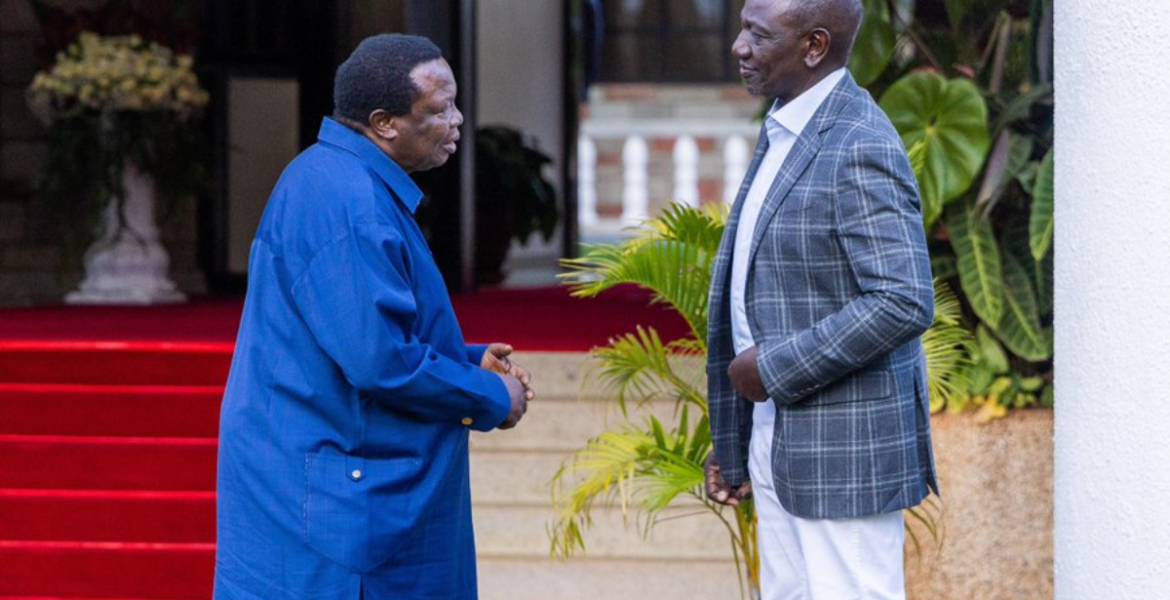
Cotu Secretary General Francis Atwoli with President William Ruto
- 138 views
As Kenya approaches its 2027 general elections, the debate surrounding taxation and its implications for salaried workers is intensifying.
Central Organisation of Trade Unions (COTU) Secretary General Francis Atwoli has recently expressed scepticism regarding the potential electoral impact of the 3.2 million formally employed Kenyans, stating that the political landscape in Kenya is largely influenced by ethnic ties rather than specific policy issues. Atwoli's comments were made in reaction to assertions by former Deputy President Rigathi Gachagua, who has been mobilizing salaried workers to oppose President William Ruto’s administration due to perceived excessive taxation.
Gachagua claims that individuals on payslips significantly influence their families and peers, potentially rallying up to nine million voters against Ruto. However, Atwoli contends that removing President Ruto from power in 2027 will be more complex than Gachagua implies. He notes that the effectiveness of mobilization efforts hinges on the demographics being targeted and reiterates the prominent role that ethnicity plays in Kenyan elections.
Challenging the narrative of burdensome taxation, Atwoli asserts that many Kenyans historically evade taxes, pointing out that the real concern should be whether tax revenues are allocated appropriately, not merely the tax rates themselves. He emphasizes that while taxation is ubiquitous, Kenya has struggled with tax compliance, and funds earmarked for the Kenya Revenue Authority often fail to reach their intended destinations.
Gachagua and other opposition figures are leveraging public discontent over taxation as a campaign strategy ahead of the elections. Concerns have emerged regarding a perceived heavy tax burden on salaried workers, highlighted by recent levies including a 1.5% deduction from gross pay for the Housing Levy and a 2.75% health insurance contribution, with an increase in National Social Security Fund (NSSF) contributions anticipated next month.
In a recent statement, Gachagua pledged that if he and his allies win the election, they would abolish these levies. He criticized Atwoli for not vocally defending workers against the increasing tax burden, asserting that Kenyans are currently facing unprecedented financial struggles while suggesting that even organized labour groups have been co-opted into supporting the government. Atwoli has responded by holding Gachagua accountable for his prior involvement in implementing the very taxes he now criticizes.
He questions Gachagua's sudden concern over the tax burden when he was part of the administration that established these deductions and levies.
In addition, Atwoli dismisses claims from the Federation of Kenya Employers (FKE) regarding job losses and business closures, reiterating that the assumption of a significant revolt against Ruto by the salaried workforce is misguided.
